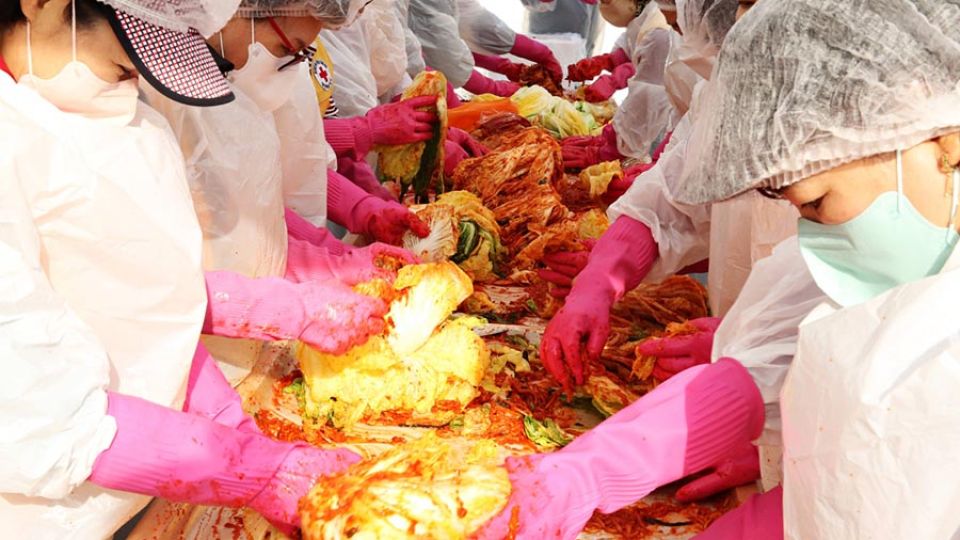November 17, 2022
SEOUL – South Korea’s imports of kimchi, a staple of almost every meal, reached an all-time high last month, with soaring ingredient costs driving up prices of domestically made kimchi amid inflation fears.
In October, kimchi shipments from overseas surged by 50.9 percent compared to a year earlier to $17.02 million, according to data from the Korea Customs Service. The figure showed a 16.2 percent increase from the previous month.
It is the first time monthly imports surpassed the $17 million mark.
This year’s annual kimchi imports are also expected to reach a record high. During the January-October period, inbound kimchi shipments marked $141.5 million, already exceeding last year’s annual imports of $140.7 million.
On the other hand, the country’s exports of kimchi decreased on-year by 12.9 percent to $118.6 million, turning last year’s trade surplus into a deficit of $22.9 million.
Sources said it was mostly because base effects of the kimchi boom have faded away compared to 2020, when the fermented cabbage side dish garnered huge attention overseas for its potential effect in boosting immune health.
In 2021, kimchi trade swung into a surplus of $19.2 million after 12 years due to a surge in exports.
Soaring kimchi imports were driven by consumers seeking less expensive options, despite the widespread perception that domestic kimchi is healthier.
Data showed the overall imported kimchi was priced at $648 per ton last month, 80.7 percent cheaper than locally purchased kimchi.
Daesang, the largest kimchi maker in terms of market share here, increased its average price of kimchi by 9.8 percent last month. CJ CheilJedang has also raised its price by 11 percent.
The retail price of the two brands’ 10-kilogram packages of kimchi ranges from 50,000 won ($37.70) to 100,000 won, while the Chinese alternative is priced at around 20,000 won.
Korea imported 99.9 percent of the total inbound shipment of kimchi worth $141.5 million from China, as of October.
With improved supply management, the wholesale price of cabbage, the main ingredient of kimchi, dropped by 83.8 percent to 7,384 won per 20 kilograms from a month earlier as of Tuesday. But kimchi makers say they cannot tell whether the price of kimchi will go down any time soon.
“It could be difficult to lower the price of kimchi because other ingredients including red pepper, salt and garlic are still quite expensive,” said a food company official on condition of anonymity.
Kimchi imports from Korea to China shrunk last year to $140.7 million from 2020’s $152.4 million.
“I think hygiene issues of some Chinese kimchi manufacturers may have turned consumers away from cheaper Chinese alternatives last year, but the demand seems to be bouncing back recently as inflation shows little sign of abating,” the official added.


